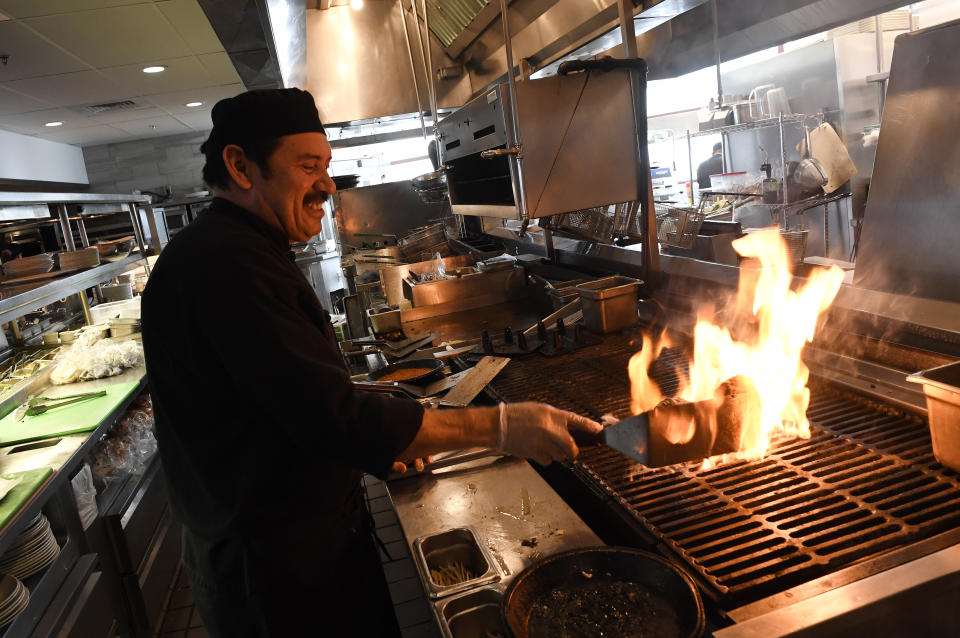Trump administration's proposed tipping rule raises fear of legal wage theft

It’s illegal for employers to take tips from employees. But, the Department of Labor (DOL) is proposing a new rule that would allow employers to take their workers’ tips as long as they earn at least minimum wage.
Published on the Federal Register on Tuesday, the new rule would rescind a regulation enacted during the Obama administration that mandates employers distribute tips to their tipped employees. Under the new rule, restaurants would be able to pool tips from servers and share them with untipped employees like dishwashers.
Heidi Shierholz, senior economist and director of policy at the Economic Policy Institute (EPI), points to research that shows illegal wage theft exceeds $15 billion every year. “It seems obvious that when employers can legally pocket the tips earned by their employees, many will do so,” she said.
The DOL argues that tip pooling helps reward those who don’t normally get tips. Groups like the Oregon Restaurant and Lodging Association assert that this rule “would help decrease wage disparities between front-of-house and back-of-house employees.”
But labor advocates say the likely outcome would be employers pocketing those tips.
“If companies have trouble retaining non-tipped workers because their pay is so low, the solution is for the companies to raise the wages of those workers—not for the labor department to rig the rules so employers can essentially steal earnings from tipped workers to subsidize the businesses’ low wage model,” said Christine Owens, the executive director at the National Employment Law Project (NELP).
The public can submit comments within 30 days. While comment periods typically range from 30 to 60 days, agencies may also provide longer time periods (180+ days).
Shierholz notes that this is an “outrageously short window for commentary,” particularly because it was published during the holiday season.
While there’s the possibility of an extension, it’s a clear move to reduce public input, according to Shierholz.
“DOL is trying hard to hide how much this change in existing protections will cost workers as it tries to sneak this rule through an extraordinarily short public comment period over the holidays,” added Owens.
Lack of analysis
Another glaring issue with the proposal is the complete absence of economic analysis, according to Owens. She says that analysis would inevitably show the transfer of money from workers to employers, particularly big restaurant chains.
This analysis is “essential information the public needs to make informed comments about the proposal,” she said.
In fact, Shierholz and her team at EPI are currently working on a way to quantify the economic disadvantages the said rule would have on employees. By using the Bureau of Labor Statistics’ current population survey and IRS data, the EPI is deriving a way to examine how much money would be transferred from employees to their bosses. With the caveat that both sources tend to underreport tips, Shierholz asserts that the DOL has a legal obligation to do a thorough analysis.
“Make no mistake: as a result of this rule, workers will take home less, and their loss will be employers’ gain,” she said. “And Trump’s DOL is willing to break the requirements of the rulemaking process to attempt to hide that fact.”
Melody Hahm is a senior writer at Yahoo Finance, covering entrepreneurship, technology and real estate. Follow her on Twitter @melodyhahm.
Read more:

 Yahoo Finance
Yahoo Finance